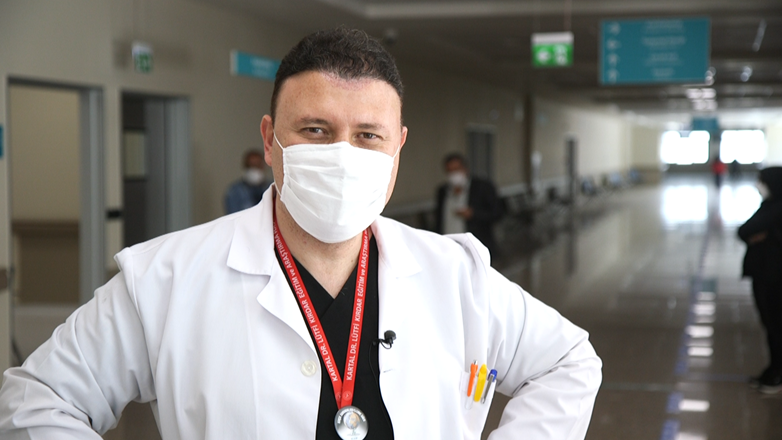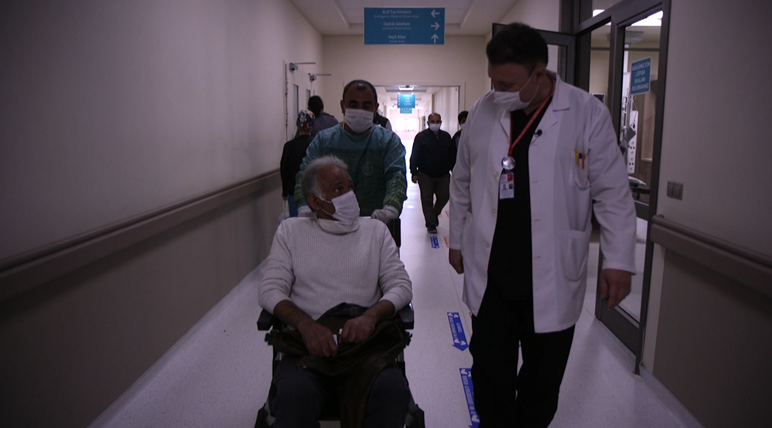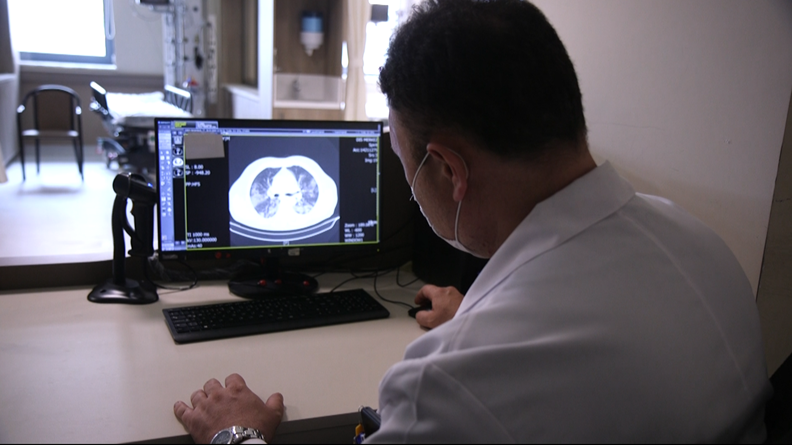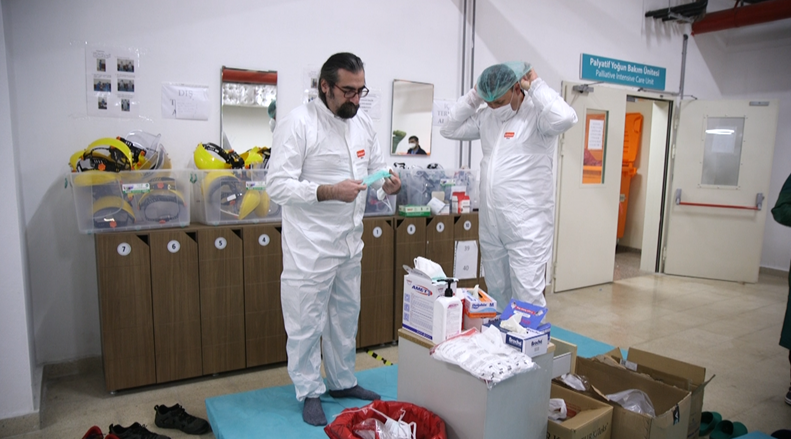04:55

In Turkey, where there are over 148,000 confirmed coronavirus cases, the government has taken a different approach in both efforts to contain the virus and in treatments at hospitals.
The methods used in hospitals were standardized by the Health Ministry early on, and doctors in Turkey are saying they believe these procedures have been successful.
One of the busiest hospitals in Istanbul, the Kartal Lutfu Kirdar Training and Research Hospital, has treated over 39,000 COVID-19 cases. In a special interview with CGTN, Mehmet Mustafa Altintas, the deputy chief physician of the hospital, walked us through his daily routine while sharing his personal experience in fighting the coronavirus.

Dr. Altintas greets an incoming patient at the emergency entrance. /CGTN
Dr. Altintas greets an incoming patient at the emergency entrance. /CGTN
Starting early morning, Dr. Altintas greets incoming patients at the emergency entrance. On arrival, a nurse briefs him of a newly arriving patient with symptoms of "shortness of breath, coughing," and adds that "he has chronic obstructive pulmonary disease." Dr. Altintas begins taking the patients' history before sending him for testing. He explains that the difference between COVID-19 and other contagious diseases is that "it almost chooses the people with existing conditions and holds on to them, for those who have a strong immune system it doesn't create a major problem, so it's as if the virus is doing a natural selection."
After a COVID-19 test, the patient is sent for an lung tomography scan. Dr. Altintas analyses the scan and points out that it has a ground glass appearance, one of the indicators of the coronavirus. For Dr. Altintas, it's clear this patient is coronavirus positive. After confirming with the test results, he notifies the patient and admits him for treatment. The patient will be transferred to a special intensive care unit designated just for COVID-19 patients.

Dr. Altintas analyses the scan. /CGTN
Dr. Altintas analyses the scan. /CGTN
While medical staff just wear surgical masks around the hospital, as the crew and doctor prepare to enter the COVID-19 unit, much more personal protection equipment (PPE) is worn. A full protective gown, goggles and N95 mask is required inside this area. Dr. Altintas says it's quite a challenge to wear these PPEs for long periods. "Being in one of these suits is like entering a sauna and not being allowed to leave even when you want to… sweaty and in that stressful environment, it can be quite troubling."
Dr. Altintas explains that as soon as Turkish officials became aware of the virus spread in China, the Health Ministry was put on alarm. He says medical professionals presumed that it would transform into a pandemic and quickly began preparations, even before the virus was first confirmed in Turkey. He adds that by taking early precautions, such as collecting antiviral medicine from pharmacies, the country was prepared to fight the virus.

Healthcare personnel and doctor prepare to enter the COVID-19 unit. /CGTN
Healthcare personnel and doctor prepare to enter the COVID-19 unit. /CGTN
Dr. Altintas describes Turkey's approach in treating a patient: "We put the patient's face down, head slightly tilted, in what we call the prone position. The advantage is that it relaxes the lungs by about 20-30 percent and that increases oxygen." In Turkey, intubating a patient has been set to be the last option in treatment. Hospitals have been instructed to intubate only when "the lungs are out of breath, when the breathing muscles are exhausted and oxygen saturation is very low," according to Dr. Altintas.
The deputy chief explains that one of the most challenging aspects of COVID-19 has been staying away from loved ones. Dr. Altintas says he hasn't hugged his children in a month and a half. During this difficult period, he says medical staff at his hospital focused on team work. "We shared our troubles, tried to support and motivate each other, we strengthened one another." He says that from what he's learned during this pandemic, in fighting COVID-19, the most important thing "is keeping your morale and motivation strong, and most importantly, never give up."